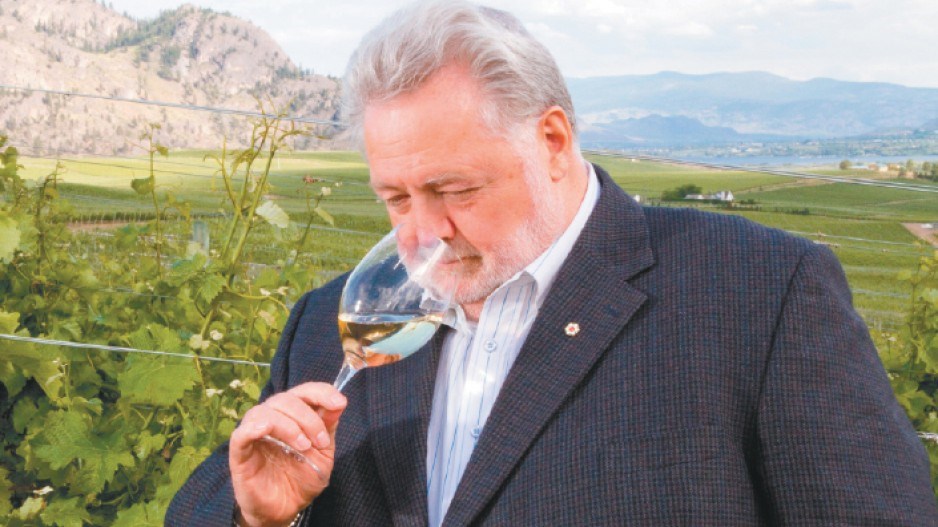Wine tourism in B.C. is expected to rise as wine lovers around the world get more exposed to local wines and are inspired to visit the province’s wine regions.
Attracting international wine tourists and wine exports will not be easy, however.
New international trade agreements will help; so will major international award victories by B.C. wineries. But the most effective means to attract global curiosity about B.C. wines could be government-funded events aimed at gaining greater distribution to foreign wine stores and getting on prestigious international restaurants’ menus.
B.C. wine festivals and wine tourism contributed a $476 million economic impact to the provincial economy last year, according to British Columbia Wine Institute (BCWI) statistics. That impact has risen steadily during the past decade, BCWI CEO Miles Prodan told Business in Vancouver.
Prodan is slated to host an event to promote B.C. wine in Hong Kong for the second time this year, on November 11 and 12.
“Given our proximity to Asia and our connections and the work the provincial government is doing, it is Asia where it makes sense for us to export,” Prodan said.
Europe, he said, is less of a priority.
Most EU tariffs were removed in a 2004 trade agreement yet did not lead to a significant jump in B.C. wine exports.
A total of 3.5% of BC Vintners Quality Alliance wine was exported in 2012 – up from 2.6% in 2011 – but remains a sliver of total B.C. wine production.
The recently negotiated Canada-European Union free trade agreement would knock $1 in tariffs off a $50 bottle of B.C. wine if it gets ratified.
Many people in the industry told BIV that they do not believe that such a small tariff reduction will make much of a difference for B.C. wine exports to Europe.
That’s largely because exporting to Europe involves the hurdle of overcoming deep, local prejudices, said 45-year B.C. wine industry veteran and Vintage Consulting Group principal Harry McWatters.
“Europeans buy what they’ve grown up with and they buy local,” McWatters said. “If you go to Bordeaux, I challenge you to find a bottle of Burgundy.”
Indeed, more than 90% of sales in wine-producing countries such as Australia and South Africa are for domestic wines, added Canadian Vintners Association board member Josee Tyabji.
That preference for local wines makes it harder for B.C. wines to grab market share in export markets that also produce wine. It is also another reason why Asia, which produces little wine, makes a great target market, she said.
Bench 1775 owner James Stewart has known this for years. He started exporting icewines branded Paradise Ranch and Whistler to Asia more than a decade ago.
Recently he started making table wines and has been exporting some of that production through his existing distributor network in China, Korea and Japan.
While about 50% of Stewart’s icewines are sold in Asia, only about 10% of his Bench 1775-branded table wines were sold there last year. He expects his table wine exports to jump to about 15% in 2013 but recognizes that increasing foreign wine sales past that threshold will be difficult given that B.C. wines have a higher cost of production than do wines in much of the world.
Stewart will not be present at the dinner and roundtable discussion that Prodan will host in Hong Kong.
Instead, Prodan will represent wineries such as Stoneboat Vineyards, Nk’Mip Cellars and Church and State Wines.
Those wineries will join the federal government in contributing to the cost of the events held at the official residence of the Canadian consul general.
Invited guests will be sommeliers, distributors and others whom Prodan calls “key influencers.”
Earlier this year, the B.C. government, through its trade and investment office, helped finance a dinner in Hong Kong where table wine from six B.C. wineries was poured.
The BCWI and represented wineries, such as Quails Gate Winery, Laughing Stock Vineyards and Poplar Grove Winery, all also helped finance the invite-only event targeted at a similar audience.
Many Asians know B.C. for its icewine, Prodan said. The challenge is to convince them that B.C. also makes world-class table wine.
This is where Mission Hill Estate Winery’s October 3 win at the Decanter World Wine Awards for the world’s best Pinot Noir in the under £15 category helps the entire B.C. wine industry.
Mission Hill owner Anthony von Mandl called the award a “seminal moment for the entire Canadian wine industry” after his victory. That may be a bit of a hyperbole.
B.C. wines have won hundreds of awards including some major ones on a global scale.
For example, Jackson-Triggs Winery won an award in 2006 for having the best Syrah in the world at the International Wine and Spirit Competition (IWSC) and Mission Hill, in 1994, won the IWSC award for the world’s best Chardonnay.
“Mission Hill’s award is not to be underemphasized,” Prodan said. “It’s huge. But it’s an affirmation of how well B.C. wines overall are doing on the world stage.” •




